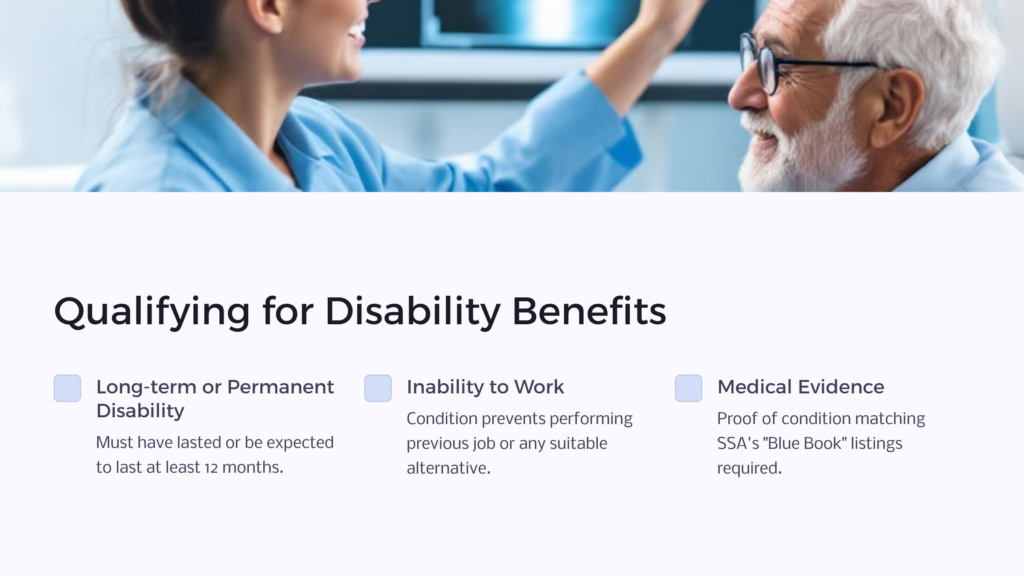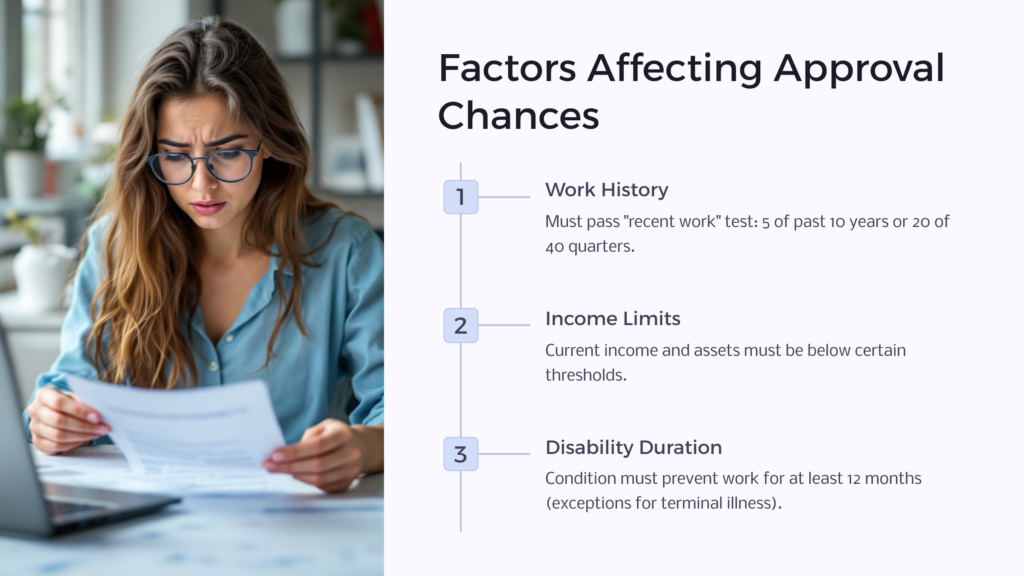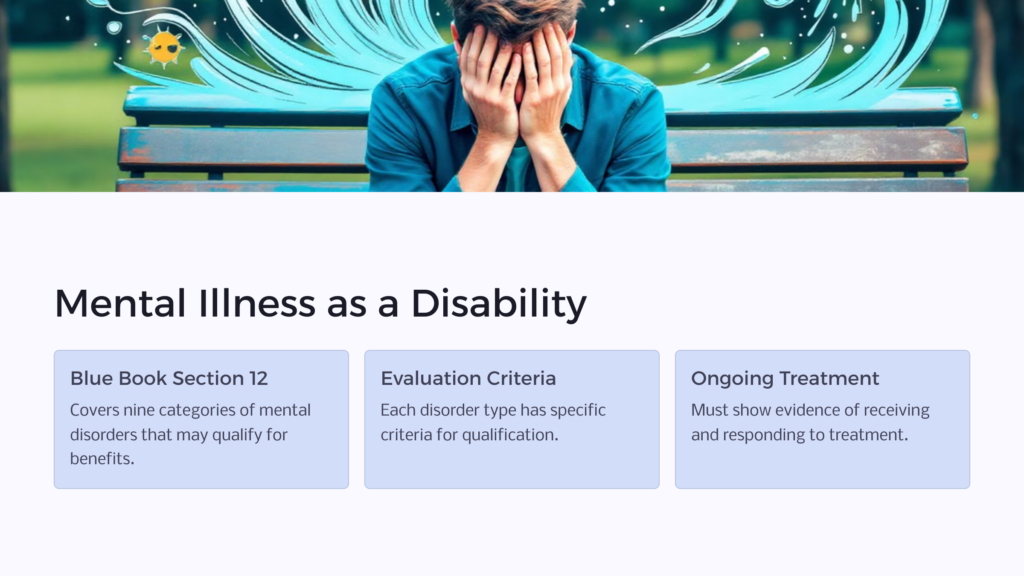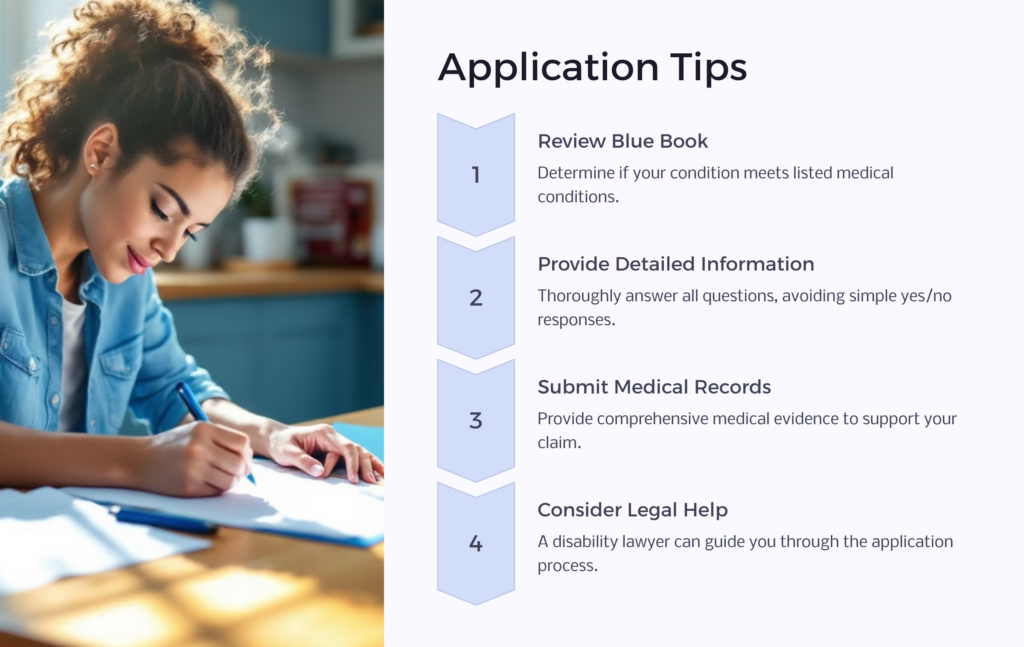When applying for disability benefits, Social Security will want you to answer some questions to determine your eligibility. To qualify for SSDI benefits, you must provide valid proof that you cannot work due to disability.
What Disabilities Qualify for Federal Financial Aid?

To qualify for disability, Social Security must be medically convinced that an individual can no longer perform the work they previously did.
However, because a disability has kept an individual from working doesn’t automatically determine that they’re considered disabled by the Social Security Administration standard.
To be considered disabled, you must have suffered from a long-term (considerably at least 12 months) or permanent disability that stopped you from working or performing any activity related to your occupation.
For instance, let’s assume you’ve been working as a marketing manager for the past 15 years, and your job requires you to move around the office. But because of your Disability, you cannot move and perform the duties required of you from work.
While your injury may be back-related, Social Security may not consider you disabled. They may suggest other jobs suitable for your condition, such as working as a receptionist.
If there are other types of work you can perform in the national economy, you may not qualify for Social Security benefits.
The Social Security Administration published a “Blue Book” that contains a list of impairments that qualify individuals for Social Security benefits.
Suppose your medical condition is included in these published medical listings, or you can demonstrate with medical evidence that your situation is similar to the severity of these listings. In that case, you may be considered for Social Security Disability Insurance payments.
However, proof of your Disability is not the only eligibility factor for SSDI benefits.
What are the chances of getting approved for disability?

Certain factors can increase your chances of getting approved for disability. They include:
How long you have worked
This is a key criterion in the disability application process. To qualify for SSDI, you must pass the “recent work” test, meaning you’ve worked 5 of the past 10 years or 20 of the past 40 quarters.
In addition, your work must have made $1,360 for a quartet to count.
Annual income
If you have not worked for the past 5 or 10 years, you may qualify for a disability benefit, which is mainly reserved for very low-income people.
Your current asset and monthly income (from every source) for SSI benefits must be below a certain amount. Visit the SSI website for more info.
Meeting the standard definition of disability
If your work credit is enough to qualify for SSDI or your assets and income are low enough to qualify for SSI benefits, your application will be evaluated against specific criteria to see if you qualify.
Does your medical condition prevent you from working for a year or more?
Social Security and Supplemental Security income viability benefits are designed for people with severe medical conditions that have kept them away from their jobs for at least 12 months.
To become eligible for disability benefits, your condition must have deprived you of doing a significant amount of work for at least a year (However, the 12-month rule does not apply for terminal illness).
If you apply when you have been off work for only a month or two, your claim may get disqualified to see if your condition will improve or not.
This also applies to medical conditions that involve temporary impairments, such as hip surgery recovery, whiplash due to car accidents, or a broken leg. Keep a detailed medical record of your disabilities and injuries to compile medical evidence for your disability claim.
Does mental illness count as a disability?

A mental illness can be considered a disability by the SSA, and you may qualify for Social Security disability benefits.
The Social Security Administration created the Blue Book as a guideline for which medical condition qualifies someone for disability benefits.
Section 12 of Blue Book talks about mental disorders, highlighting which mental disorder type can qualify for Social Security benefits and the circumstances of qualification. The book covers nine categories of mental disorders, which include:
- Affective disorder
- Autism and related disorders
- Anxiety disorder
- Personality disorder
- Schizophrenia
- Substance addiction
- Paranoia
- Organic mental disorder
- Intellectual Disabilities
Each disorder type is evaluated based on its disorder. To qualify for benefits based on that condition, you must demonstrate that you meet these criteria.
Irrespective of the mental disorder you’re dealing with, you must show that you’re receiving and responding to treatment.
It’s critical to continue with your treatment as you process the Social Security disability benefits application.
What automatically disqualifies you for Disability?
Many applicants think that a severe medical condition that prevents them from working automatically qualifies them for disability benefits.
However, certain things may automatically disqualify applicants from getting approved for disability benefits.
Not meeting the blue book listing
You have to meet the blue book listing to qualify for disability benefits. The SSA covers hundreds of top disabilities that qualify for benefits.
You must provide medical evidence of your qualifying disability listed in the blue book. If you cannot do this, ask your doctor to carry out a residual functioning capacity (RFC) assessment demonstrating what you can physically and mentally do.
If you prove that you don’t have the mental or physical ability to work for at least 12 months, you may qualify for disability benefits.
Having low work credits
To become eligible for Social Security disability insurance, you must have enough accumulated work credit. The number that qualifies you will depend on how long you’ve worked.
To qualify for SSDI, you have to pass a duration work test and a recent work test.
Your age will determine the credits required to meet the recent work test.
If you’re below the age of 24, you may qualify if you earned 6 credits in the last 3 years ending when your disability started. But if you’re between the age of 24 to 31 years, you can become eligible if you have enough credit for working half the time between 21 and when your viability begins. If you’re older than 31, you need to earn a minimum of 20 credits in the past 10 years before your Disability started.
If you can still work
If you’re still able to work, you may not qualify for disability benefits because one of the most common requirements for SSDI eligibility is the inability to work for a minimum of 12 months.
Making enough money
To become eligible for disability benefits, a person must be unable to participate in substantial gainful activities (SGA), making up to a certain amount. You will not qualify if you make more than the SGA. The threshold in 2022 is $1,350 per month. The amount is about $2,260 for people who are statutorily blind.
Any other tips or things to keep in mind

- Review the Bluebook and determine upfront if your disability meets the required listings of a medical condition; otherwise, you may have to fill out extra paperwork.
- Provide detailed information on your application. Thoroughly provide answers to each question to prove to the officer at the Disability Determination Department that your condition disrupts your ability to work.
- Avoid providing a “yes” or “no” answer, which may get your application denied. Don’t leave a question unanswered.
- Submit your existing medical record to SSA as they’re received. The more medical evidence, the better your approval chances.
- Consider using a disability lawyer. They can support you throughout the application process and even boost your chances of getting your application approved.
 Benefits.com Advisors
Benefits.com Advisors
With expertise spanning local, state, and federal benefit programs, our team is dedicated to guiding individuals towards the perfect program tailored to their unique circumstances.
Rise to the top with Peak Benefits!
Join our Peak Benefits Newsletter for the latest news, resources, and offers on all things government benefits.



















